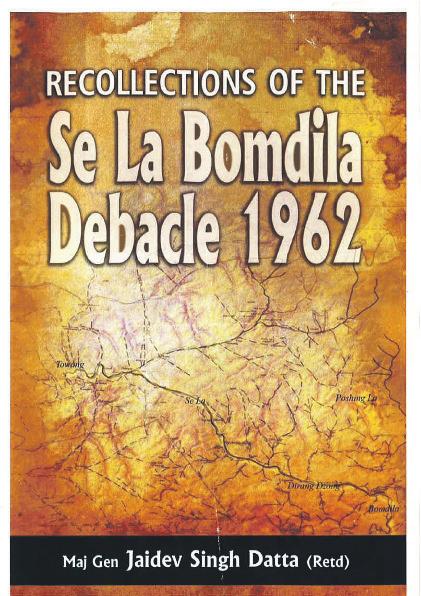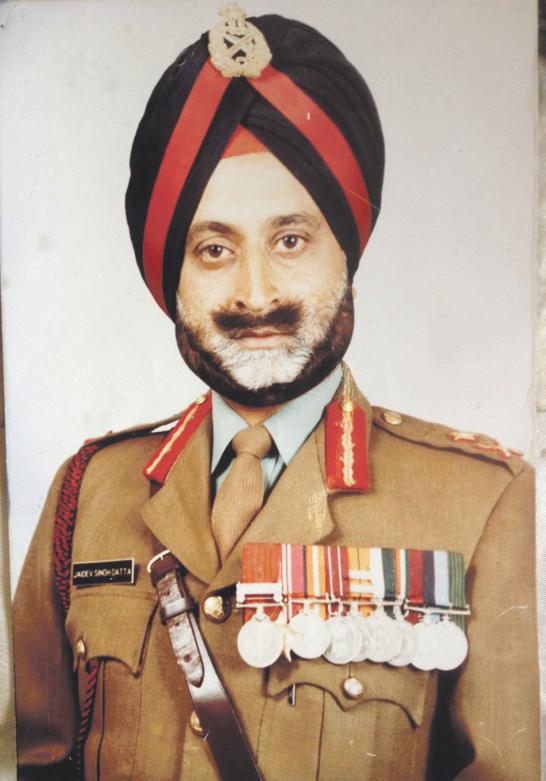
2 minute read
Realistic recollections
from 2013-03 Melbourne
by Indian Link
A book about the Indo-China war of 1962 examines events as they unfold in their harsh starkness
No one would be better qualified to write about the Bomdila debacle during the IndiaChina war in 1962 than Major General (retd) Jaidev Singh Datta who was Brigade Mayor of 62 Infantry Brigade deployed to the war. His book Recollections of the Se La Bomdila Debacle 1962 was released recently to commemorate 50 years of the India-China war of 1962. Reconstructing the events in a straightforward and unadorned manner, the author gives an account of things as they happened. He also gets input from the Chinese perspective through material sourced and translated from the official Chinese books: China’s war of Self Defence counter Attack on India published by the Academy of Military Sciences (Beijing), and True History of China Border War by Prof Yan Xun of the National Defense University, Beijing.
According to the synopsis, Major General (retired) Jaidev Singh Datta was born in 1927 in Lahore. After graduating, he got a commission in the Regiment of Artillery in 1948. He later graduated from Camberley Staff College, UK in 1961. He served as Brigade Major 62 Infantry Brigade at Se La in 1962. During the IndoPak war of 1971, Major Datta served as Colonel General Staff at Amritsar. He commanded the 39 Artillery Brigade at Yol Alhilal near Dharamshala in Himachal Pradesh. In 1975, Major Datta was posted as Military Attache in the erstwhile Soviet Union in Moscow, and was concurrently accredited to Outer Mongolia. From Moscow he went on to serve as Major General Artillery Eastern Command, Calcutta and finally as Major General Administration Western Command Shimla, from where he retired in 1983. After retiring, Major Datta settled in Delhi where he lives with his wife Kushal who helped him in editing the book. His son Satinder (Bunty) Singh lives in Melbourne and his daughter in North Carolina, USA.

Major Datta was in Melbourne recently to visit his family.
Recollections… takes one along on high mountain passes, on foot, through dense forests where soldiers are killed or wounded, packing up and dispersing to another location not knowing what lies ahead. The writer coveys through his writing, lessons that are to be learnt from the short war, mainly the need for national preparedness, importance of physical fitness and endurance training, higher emphasis on combat survival, better fire control, necessity of realistic training, cooperation and planning with Air Force, better assessment of opposition and minimal breaks in chain of command. The author was privy to all developments and key decisions that led to the withdrawal of the Brigade from Se La. According to Major Datta, the Indian political leaders in Delhi and the Army brass failed to read the Chinese intentions to encroach further into Indian territory, which brought great humiliation to the Indian Army. The Se La debacle resulted in the death of almost 1000 personnel, most of whom never got the opportunity to fight the enemy.
Major Datta’s writing is more like a memoir with discussion of combat, deployment, decision makers and men in the field. The
According to Major Datta, the Indian political leaders in Delhi and the Army brass failed to read the Chinese intentions to encroach further into Indian territory, which brought great humiliation to the Indian Army attempt is to defend the actions of individual decision-makers (particularly late Brigadier Hoshiar Singh), given the circumstances and tenuous status of the operation. This book belongs with several publications that are attempting to objectively engage with the events and policies that led up to the armed conflict between India and China. Certainly not a light read, neither bulky nor verbose, this one is for those who like to read about history, strategy and wars - straight and simple.
Preeti Jabbal










